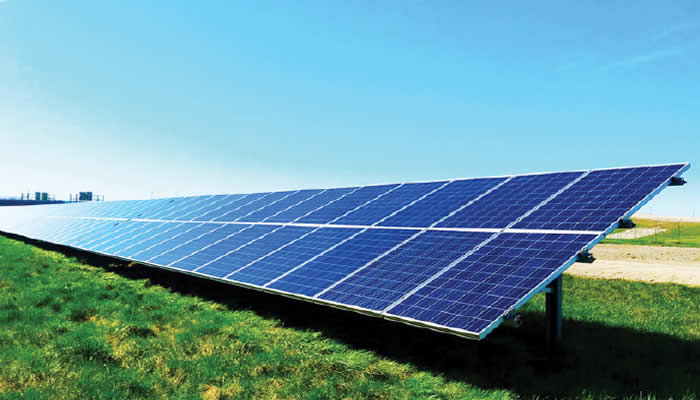
Chint Global and other non-renewable energy firms have proposed solar integration to solve energy challenges in Nigeria.
Speaking with The PUNCH on the power generation gap in Nigeria at the Power & Water Nigeria Exhibition and Conference 2022 in Lagos, Chint Global Country Manager for Nigeria, Michael Chen, said Nigeria had been a major target for solar power distribution.
“Egypt has about 100 million people, but Nigeria has 200 million people. However, the power generation capacity of Egypt is about 60 gigawatts while Nigeria has 13 gb watts. So, the capacity of power generation in Egypt is about five times that of Nigeria. Nigeria has a 200 million population, and one of the biggest GDPs in Africa.
“This will make Nigeria a bigger market for electrical equipment. This is a good opportunity for marketing and a means to contribute to Nigeria with our professional equipment and services to make this country a better place,” he said.
Chen noted that Chint Global, which is into the four industry chains of power generation, storage, transmission, distribution, and utilisation, had contributed solar power to crucial parts of the country.
“As a priority in Nigeria, our 132 kV transformer is working in TC and grid power systems. From Lagos to Ibadan, all the people are using the Chint distribution,” Chen said.
Stressing the urgency of solar power integration in Nigeria, Director of Solar Centric Technologies and Vice President, Renewable Energy Association of Nigeria, Adetunji Iromini, stated at a panel discussion session that, “although we have pushed for some intervention programmes to fast track integration, the government is yet to come to the table.”
On the escalating costs of products like diesel, he said the government now knew that it needed to onboard distributed renewable energy into solving Nigeria’s energy problem.
“So RIAN as a body is at the forefront of engaging with the government on strategies to solve the power problems in the country,” Iromini further said.
In a bid to stay reliable amid the failing power grid system in Nigeria, more businesses were turning to the solar industry, Chief Commercial Officer, Arnergy, Omobola Omofaiye, stated.
According to her, many organisations and businesses wanted to stay reliable while offering their product solutions to the market, adding that solar power provided such reliability.
“You can enjoy 24/7 electricity without interruption and exposure to power. The second is cost savings. People also want to reduce operational spending. Today, diesel is over N800 and costs are escalating already,” she said.





